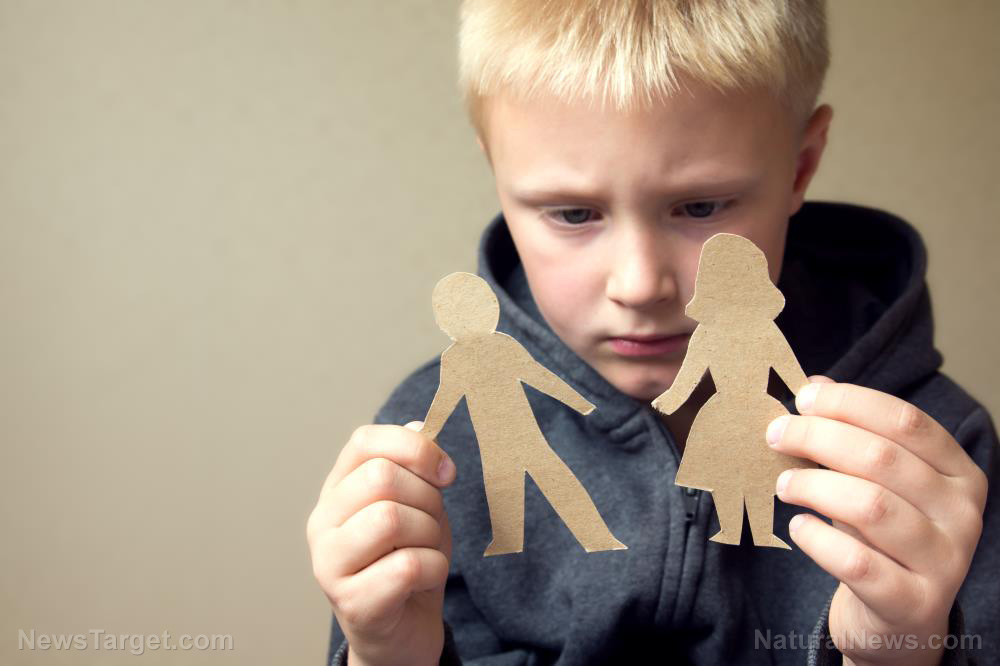Don’t eat alone; it’s bad for your health – especially if you’re a man, according to new research
11/04/2017 / By Russel Davis

Eating alone proves to be detrimental to the body’s overall health, according to a study published in the journal Obesity Research & Clinical Practice. A team of researchers at the Dongguk University Ilsan Hospital in Seoul, South Korea, has enrolled 7,725 adults as part of the study. The experts have also noted how often the participants ate alone and assessed their health status. Likewise, the research team has adjusted for various factors such as smoking, alcohol use, age and physical activity.
The findings have shown that men who often ate alone are 45 percent more likely to suffer from obesity and have a 64 percent increased risk of developing a metabolic syndrome. In contrast, women who often ate alone are only 29 percent more likely to have metabolic syndrome if they ate alone twice or more times daily. According to the experts, feelings of loneliness and social isolation might drive people to make unhealthy food choices.
“We rely on relationships for emotional support and stress management. Lonely people lack a strong social support systems and are therefore more vulnerable to the physical wears and tears of stress and anxiety. In turn, they’re at higher risk for developing stress-related diseases or conditions, such as heart disease, diabetes and high blood pressure,” psychology expert Andrew Abeyta told NBC News online.
“A lack of motivation can lead to poor food choices, settling for what is easiest and for what is comforting. People who eat alone are more likely to eat unhealthy fast food or foods that, like frozen or boxed foods, that are quick to prepare. Who wants to cook a whole meal for one? A key factor in making healthy food choices is to make a conscious effort to plan ahead and set manageable goals for healthy eating,” Abeyta added.
An outside expert has also called for further research on the negative effects of stress, sleep quality and loneliness on eating habits and metabolic health.
“Having more sensitive measures of stressful life events might help unpack some of the association a little better. We know that sleep deprivation and stress create a vicious loop that alters eating behavior, and it could be one of the things driving the experience of eating alone and of metabolic syndrome,” University of British Columbia professor Annalijn Conklin stated in a New York Daily News article.
How to keep a healthy eating habit when eating alone
Andrew Abeyta, assistant professor of the department of psychology at Rutgers, The State University of New Jersey, Camden, has listed three helpful tips in maintaining healthy eating habits among people who often eat alone.
- Tapping into cherished memories – According to Abeyta, preparing a meal that reminds you of fond memories – such as your mom’s or dad’s signature dish – could help ease loneliness. The expert has noted that remembering positive social memories may help people feel more supported and give them more confidence.
- Subscribing to meal services – Subscribing to ingredient-recipe meal kits services is an easy and convenient way to plan a solo meal ahead, the expert says. Abeyta stresses that such subscriptions are less intimidating for beginner cooks, which in turn may encourage people to cook more often. The expert explains that psychologists commonly refer to this phenomenon as ‘mastery experience’ as it adds confidence and makes people believe that they can stick to a healthy eating habit. (Related: Food preservatives and chemical additives found to promote obesity… is this why America is so overweight?)
- Making meal preparation a self-centered activity – Abeyta advises that people who often eat alone change their perspective about cooking. He recommends that people consider cooking as an activity that they do for themselves and not for others.
Sources include:
Submit a correction >>
Tagged Under:
eating habits, healthy lifestyle, lifestyle, men, metabolic syndrome, obesity, Psychology
This article may contain statements that reflect the opinion of the author
RECENT NEWS & ARTICLES
COPYRIGHT © 2017 MIND BODY SCIENCE NEWS




















